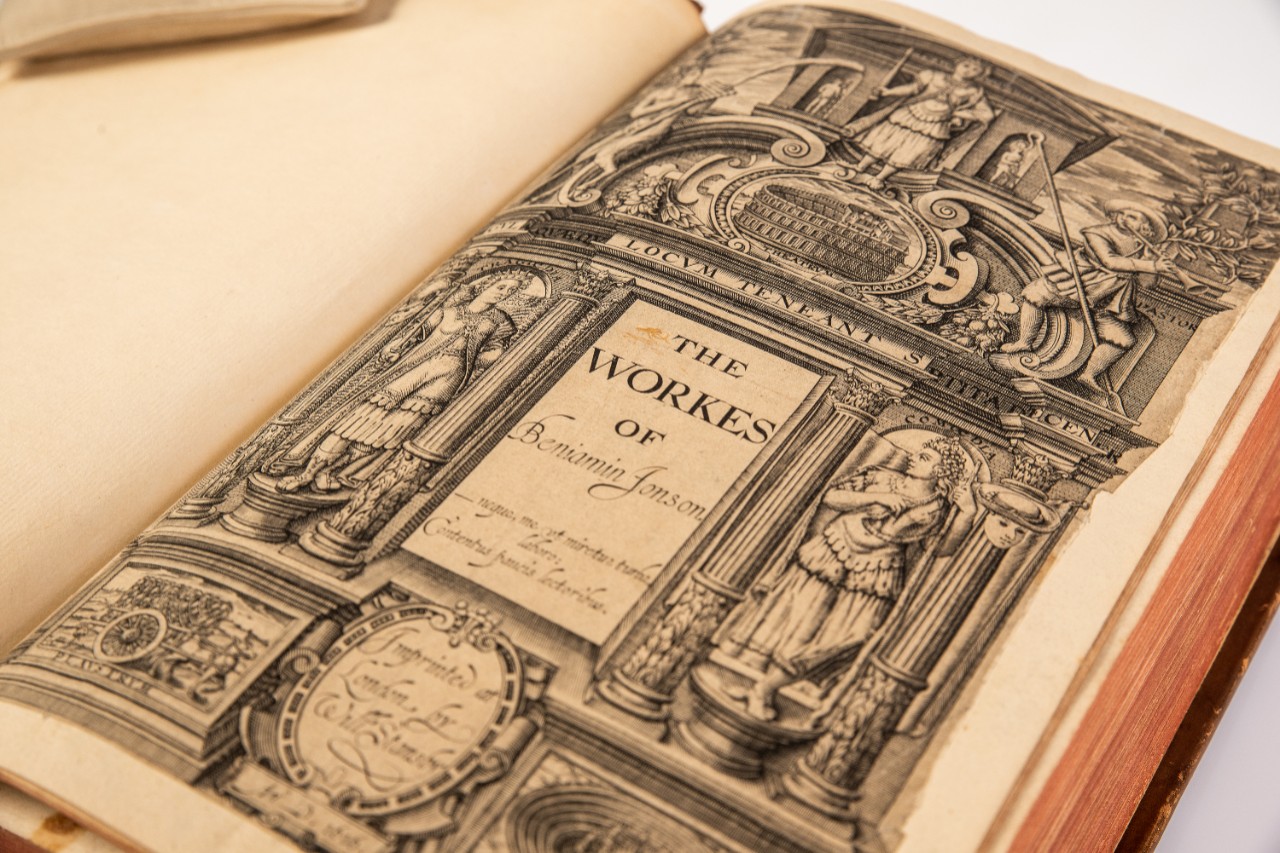An extraordinary donation


The Library recently received an extraordinary donation: a first edition of The Workes of Benjamin Jonson from 1616, along with a 16-volume set of the Plays and Poems of William Shakspeare (sic) curated by Edmond Malone and originally published in 1790, and a rare complete set of Malone Society publications.
The donors, Charles Littrell, former Executive General Manager of APRA, and his partner, haematologist Dr Kimberly Cartwright, made this very generous gift to commemorate the tenure and achievements of the University’s Vice-Chancellor and Principal, Dr Michael Spence AC, prior to his departure in December 2020.
University Librarian Philip Kent explains how he was “delighted to have met Charles and Kimberly through this special gift. The Jonson and Shakespeare works have enormous value to the University. As a collector myself, I was impressed by the way that Charles scoured the world to find the volumes to complete the set of Malone Society publications. Their gift will be enhanced as future volumes are added each year.”
The gift isn’t just a generous addition to the Library; it is a priceless resource for researchers and students across the University.
The 1616 first edition of The Workes of Benjamin Jonson (his ‘Folio’) is the original theatre book in the English language. As such, it is “one of the most important books published in England,” according to Dr Huw Griffiths, Chair of the Department of English at the University of Sydney.
“It marks the first time that a living author made a concerted effort to present his writing as a distinct and coherent body of work.”
Benjamin Jonson (1572-1637) was an English poet and playwright, best known for popularising the dramatic comedy genre, ‘comedy of humours’. As a dramatist, he is generally regarded as second only to Shakespeare.
Comprised of three kinds of literary texts: plays; poems and epigraphs; and the texts of his masques (court entertainments), Jonson’s Folio served as a model for Shakespeare’s first collected works, his ‘First Folio’ (1623).
“By placing the plays and masques in this magnificent book, Jonson is making a bold statement,” says Dr Griffiths. “Plays and masques are ephemeral, time-dependant events, and, of course, they had been printed in less prestigious print texts before.” Jonson’s innovation was to “take them out of their short-term contexts, insisting on their value across time.
Professor of Early Modern Literature, Liam Semler, concurs with this view. “Various people at the time expressed surprise and derision at the fact that a mere ‘play’ could be declared a ‘work’, and so this book helped contribute to the emerging idea of modern plays as worthy of some elevated status.”
Dr Griffiths says the Folio will be used for research as well as for teaching students about early books and how literary value is established. “The book wonderfully situates Jonson in complex contexts: the courtly writer, familiar with putting on royal entertainments, but also the working writer, engaged in the life of the printing house. He is really testing out (for all of us) how literary fame might be sustained in print.”
Though Professor Semler and Dr Griffiths have only had a short time to examine our new copy of the Folio, it is already looking very promising. The presence of “stop-press” corrections in the copy, where either the printer or the author changed text in between individual printings, indicates that our copy was produced later in the print run.
As the Library already owns a partial copy of the 1616 Folio, the value for our researchers is enhanced by the ability to make comparisons. Differences in the text will teach us how books like this were put together, and the involvement of printing houses (and potentially authors) in correcting text during a print run.
The Jonson Folio, Shakespeare volumes and other books from the donation can be viewed in our Rare Books & Special Collections reading room by appointment.
You can also listen to an interview about the Folio with Professor Liam Semler on ABC Drive with Richard Glover (commencing around 42 minutes into the program).
Related information
Related information
Contact
We're here to help, online and in person